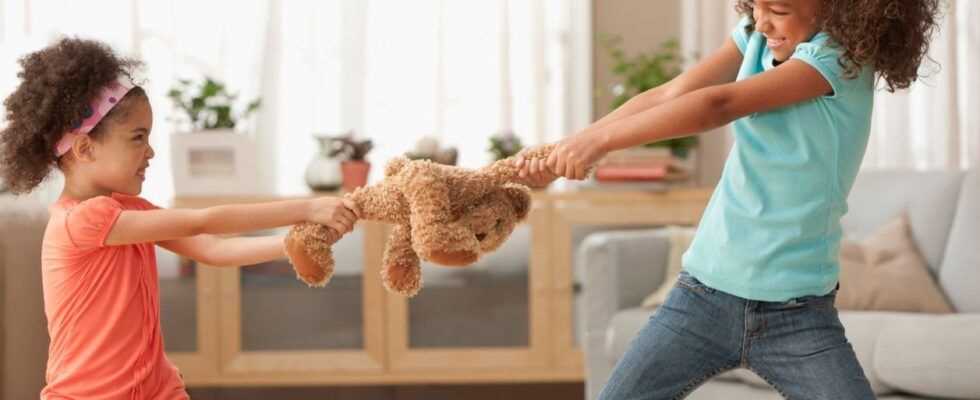A study found that children with siblings are more empathetic than others. Since they live together constantly, they would somehow be forced to learn to live with each other's character and feelings.
We all know the stories of bickering between siblings. A brother who annoys his sister by stealing her toys, by denouncing her to the parents, then a sister who takes revenge a little harder. Two sisters who curl up their buns, fighting over the remote control a little longer than the other. We also know the stories of masquerades, with children playing tricks on their parents, a little more elaborate each time. Brothers and sisters, this is cow love filled with spat.
Beyond the theories that say elders are leaders, cadets are troublemakers, and younger children are family favorites, having siblings promotes children's cognitive development, and improves their mental health. In fact, a study on child development has shown that having a sibling makes a child a better person. Indeed, it seems that not being an only child would develop the sense of empathy in a deeper way. By spending time with each other, whether older or younger, a child would be better able to understand the feelings of the other, since they live with them every day.
A study focused on reactions
Researchers at the University of Toronto in Canada have contacted 450 pairs of siblings, ranging in age from 18 months to 4 years. At the very beginning of the study, the researchers visited the families of these children and measured their level of empathy by pretending to injure themselves or to break a precious object. They then described their feelings and sensations to the children, and recorded their reactions (no human or object was abused in this study). 18 months later, the researchers redirected the experiment, and again noted the reactions. The goal was to gauge how much living with a brother or sister affected their character.
The co-author of the experiment, Marc Jambon, found that “siblings, young and old, positively contributed to each other's empathy over time”. Indeed, it is not only the little ones who would learn from their elders. The older ones would understand the empathy of their younger siblings by caring for them. The results would appear to be the same given geographic location, family status, and family relationships.
According to the researchers, the age gap in siblings is significant in terms of influence. The more distant the elder one is from his brothers and sisters, the more he would transmit a form of role model to his younger children. This can lead to a stronger form of empathy, like a mother's for her baby. A form of protection. The only notable difference: Apparently, younger brothers do not contribute to an expansion of empathy in their older sisters. The reason is not yet known, however.
Arguments are not that bad
Even though siblings often argue, they don't necessarily get something bad and negative about it. It’s grueling, they scream, they cry, sometimes beating each other a bit and beating their parents' system, but it’s natural. The study found that even if sibling relationships are not very good, children are still more empathetic than others.
We remind you that there is no no obligation to have several children, which each one is free to do as he wishes.
